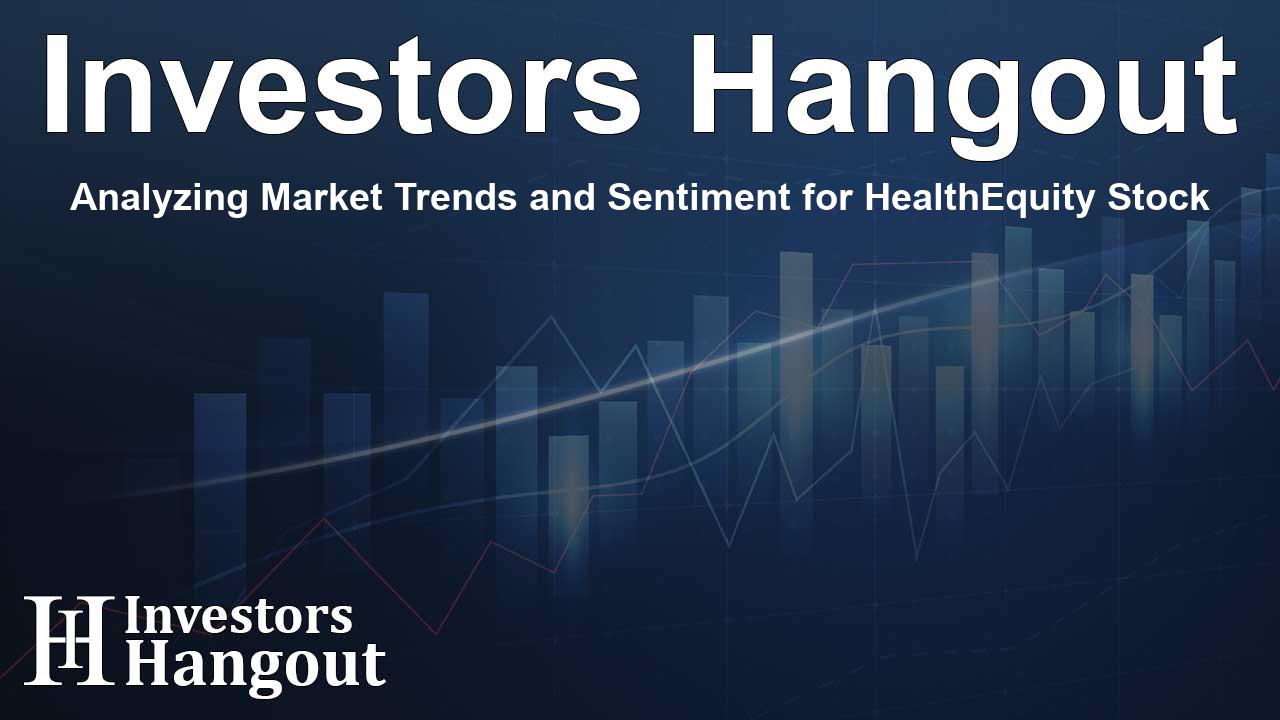Analyzing Market Trends and Sentiment for HealthEquity Stock

Understanding HealthEquity's Market Position
HealthEquity's (NYSE: HQY) short percent of float has recently surged by 7.43%, a pivotal indicator for investors keeping an eye on this healthcare financial service provider. With approximately 4.52 million shares sold short—representing 6.07% of the total available stock—it's essential to dissect what this means for potential traders and existing shareholders alike.
The Significance of Short Interest
Short interest typically reflects the number of shares that have been sold short by investors but not yet repurchased or closed out. This trading strategy involves selling shares that the trader does not possess, betting on a decrease in stock price. If the stock does decline, profits can be realized, whereas a price increase results in a loss.
Keeping a close watch on short interest offers a glimpse into market sentiment regarding HealthEquity. A rise in short interest can highlight a growing bearish outlook among investors, while a decline might indicate increased bullish sentiment towards the stock.
Analyzing Short Trends Over Time
Reviewing short interest trends often helps investors identify whether the stock’s price is likely to increase or decrease. As observed, there has been a noticeable uptick in the percentage of shorted shares for HealthEquity over the past few months. This statistic on its own doesn’t necessarily predict an immediate downturn in stock price, but traders should remain vigilant regarding the increasing number of shares being shorted.
HealthEquity Among Its Peers
In market analysis, comparing a company’s performance to its peers can provide invaluable insights. Companies with comparable characteristics—including industry, size, and financial stability—make for effective comparison. Industry analysts typically rely on a peer group analysis, which can be found within official filings or through similarity assessments.
HealthEquity stands out with a short interest percentage of 6.07%, notably higher than its average peer group, which reports a short interest of merely 3.16%. This disparity flags HealthEquity as having significant bearish sentiment compared to its competitors.
Potential Implications of Increased Short Interest
Interestingly, rising short interest isn't always a straightforward signal for decline; it can also indicate potential future growth. When more investors take short positions, it creates the possibility of a short squeeze—a situation that can lead to a price surge if those investors are forced to cover their positions, pushing stock prices up. Such dynamics can transform market sentiment rapidly.
Conclusion: What Lies Ahead for HealthEquity?
For investors considering their next steps with HealthEquity, understanding the nuances of short interest and market sentiment is crucial. Monitoring trading volume, analyst commentary, and industry trends will be vital as they determine their investment strategies moving forward. Although the current figures indicate heightened short positions, the market can turn swiftly based on a variety of factors, including economic climate and company performance.
Frequently Asked Questions
What does short interest mean for HealthEquity?
Short interest indicates the number of shares sold short that have yet to be repurchased. A high short interest can suggest negative market sentiment towards HealthEquity.
How does HealthEquity’s short interest compare to its peers?
HealthEquity has a substantially higher short interest at 6.07% compared to its peer group average of 3.16%, signaling more bearish sentiment in the market.
Why is short selling a risky strategy?
Short selling is risky because if the stock price rises instead of falling, the trader must purchase the shares at a higher price, potentially resulting in significant losses.
Can increased short interest be good for a stock?
Yes, an increase in short interest can lead to a short squeeze, which may cause the stock price to increase as short sellers buy shares to cover their positions.
What factors influence investor sentiment towards HealthEquity?
Investor sentiment can be influenced by various factors, including financial performance, industry developments, broader economic conditions, and competitive positioning within the market.
About The Author
Contact Dylan Bailey privately here. Or send an email with ATTN: Dylan Bailey as the subject to contact@investorshangout.com.
About Investors Hangout
Investors Hangout is a leading online stock forum for financial discussion and learning, offering a wide range of free tools and resources. It draws in traders of all levels, who exchange market knowledge, investigate trading tactics, and keep an eye on industry developments in real time. Featuring financial articles, stock message boards, quotes, charts, company profiles, and live news updates. Through cooperative learning and a wealth of informational resources, it helps users from novices creating their first portfolios to experts honing their techniques. Join Investors Hangout today: https://investorshangout.com/
The content of this article is based on factual, publicly available information and does not represent legal, financial, or investment advice. Investors Hangout does not offer financial advice, and the author is not a licensed financial advisor. Consult a qualified advisor before making any financial or investment decisions based on this article. This article should not be considered advice to purchase, sell, or hold any securities or other investments. If any of the material provided here is inaccurate, please contact us for corrections.
